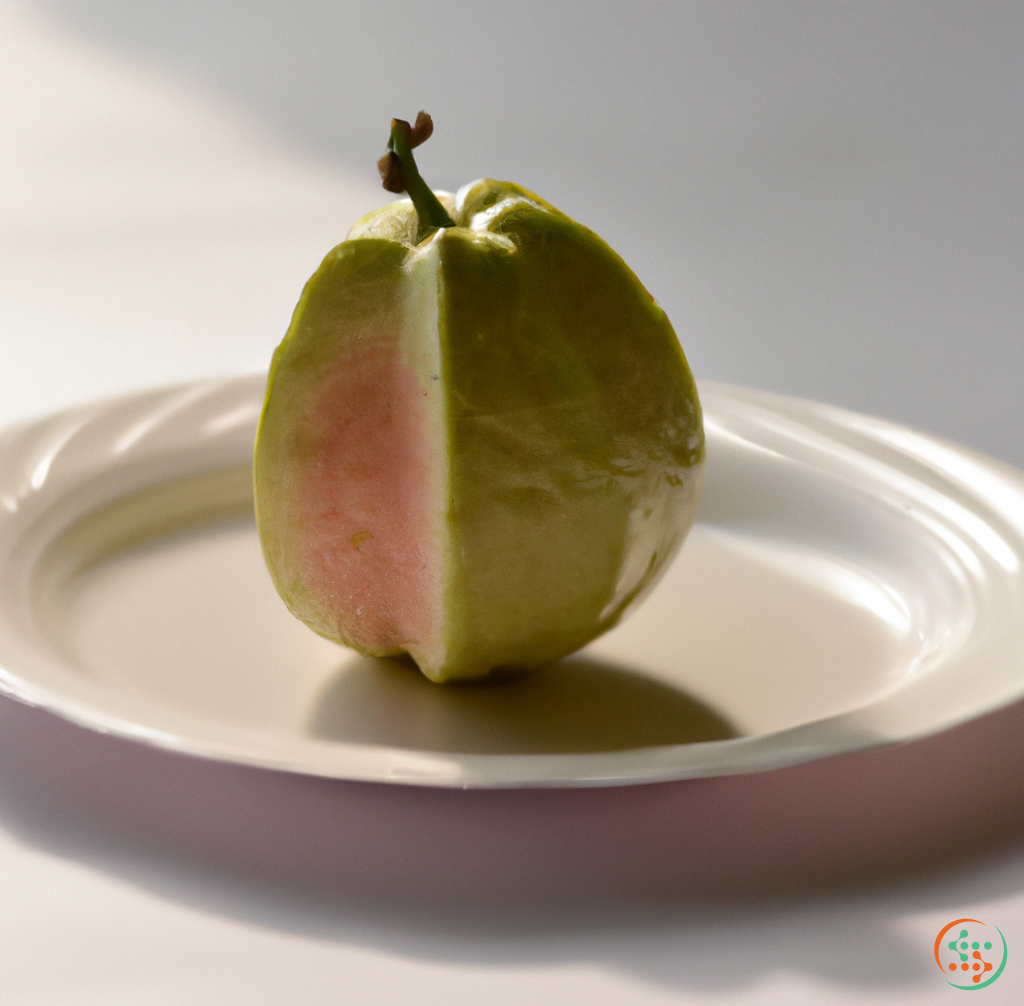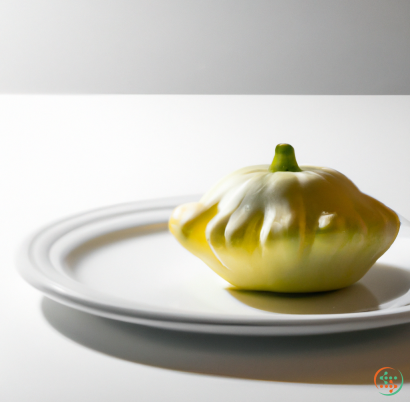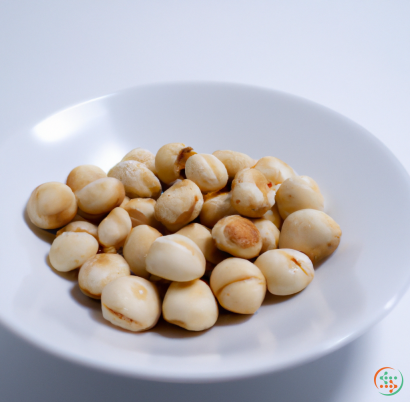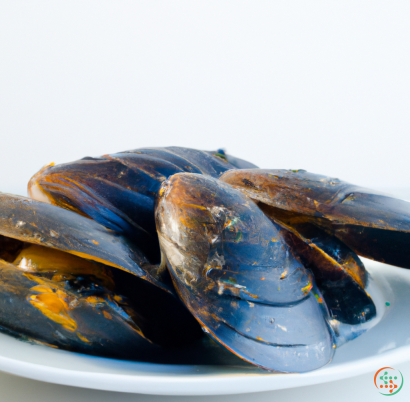Guava
What is a Guava?
Guava is a rare tropical fruit that is widely cherished for its unique flavor, texture, and health benefits. It is native to the Caribbean but can be grown in some other parts of the world since it is considered a winter crop. This small, pear-shaped fruit can be yellow, pink, or white in color and has thick skin. Commonly eaten fresh, guava also appears in a variety of dishes, from desserts to drinks.
Historically, guava was highly valued in Indigenous cultures from Mexico to the Amazon. Its various parts were used for medicinal, decorative, and culinary purposes. Today, guava is broadly appreciated for its unique, sweet taste and health benefits.
Nutritional Value of Guava
A single cup (151 grams) of cubed guava offers the following nutrients:
Calories: 112
Total Fat: 1.5 grams
Cholesterol: 0 milligrams
Sodium: 6 milligrams
Carbohydrates: 25 grams
Fiber: 8.6 grams
Protein: 2.8 grams
Vitamins:
Guava is an excellent source of several vitamins. A cup of cubed guava offers:
Vitamin A: 19% of the RDI
Vitamin C: 529% of the RDI
Folate: 5% of the RDI
Niacin (B3): 5% of the RDI
Pantothenic Acid (B5): 7% of the RDI
Vitamin E: 4% of the RDI
Riboflavin (B2): 4% of the RDI
Minerals:
A cup of cubed guava also provides a range of minerals, including:
Calcium: 3% of the RDI
Magnesium: 10% of the RDI
Potassium: 7% of the RDI
Phosphorus: 4% of the RDI
Manganese: 5% of the RDI
Other Phytonutrients
Besides its healthy dose of vitamins and minerals, guava is rich in a variety of beneficial plant compounds. One cup of cubed guava provides 251 milligrams of lycopene and 169 milligrams of polyphenols. Research suggests lycopene may have potential benefits for the heart, while polyphenols are beneficial antioxidants.
Health Benefits of Guava
While more research is needed, guava may offer a wealth of health benefits. Some of these include:
1. Improved digestion: Guava contains a good amount of fiber, which may help stimulate healthy digestion.
2. Weight loss: Eating guava — especially the skin — can help keep you feeling fuller longer.
3. Reduced risk of cancer: Lycopene and polyphenols, two compounds found in guava, may help protect against certain types of cancer.
4. Balanced blood sugar levels: Recent studies suggest guava may help balance blood sugar levels in people with diabetes.
5. Improved cardiovascular health: Thanks to its high levels of fiber, antioxidants, and vitamin C, guava may help reduce bad cholesterol, manage blood pressure levels, and reduce the risk of heart disease.
How to Eat Guava
There are several ways to enjoy guava! Here are some creative ideas:
1. Cut guava into cubes and enjoy it on its own.
2. Chop up guava, add it to shredded coconut, and use as a topping to fish or chicken.
3. Toast guava slices and top with honey, lemon juice, and sea salt.
4. Add guava to a green smoothie.
5. Make a guava jam to spread on crackers and toast.
6. Use guava to craft natural dyes.
7. Chop up guava, add it to salsa, and serve as a dip.
Conclusion
Guava is a tasty, nutritious fruit native to the Caribbean, although you can now find it grown in other parts of the world. It's an excellent source of vitamins C and A, and many minerals. Guava is also rich in lycopene and polyphenols, which may provide anti-cancer and anti-inflammatory benefits. Enjoy guava for a unique flavor and all the potential health benefits it may provide!
A Guava is an ancient fruit, a true culinary miracle that has been enjoyed for thousands of years. This tasty and nutritious fruit can be found in tropical and subtropical regions around the world, but it is native to Southeast Asia. Guavas are round or pear-shaped and have a thick, yellow-green peel with a sweet, white or pink flesh inside. Once you take a bite of guava, you will find it delicious!
The journey of a guava from a tree to the plate of a lucky eater involves a fascinating mix of biology, climate, human ingenuity, and a bit of good luck. Growing guavas is not an exact science – some parts of the world produce more succulent guavas than others. Plus, successful harvests rely heavily on specific environmental conditions, such as temperatures and rainfall. Beyond that, harvesting and transport techniques also play a crucial role in bringing these fruits to market.
So what does it take to produce a tasty, ripe guava? Let’s explore how guavas develop from flower to fruit and then take a closer look at the harvesting and shipping process. Before we start, it’s important to note that the guava growing process can vary depending on the variety and local conditions.
How Does a Guava Grow?
Guavas are flowers first and fruits second. Like other fruit-bearing plants, their life cycle begins when the plant produces flowers. The flowers of the guava species are small and have four petals, usually white or light purple. Inside each flower is a small ovary that contains one to four ovules. These ovules are fertilized by pollen, usually transferred by bees or other pollinating insects.
The fertilized ovules begin to grow and mature in the ovary and, eventually, become a guava fruit. Once the fruit forms, the ovary will continue to expand, pushing the fruit and eventually turning it into a guava. Depending on the variety, the fruit is usually round or pear-shaped and can measure anywhere from two to five inches long. The peel of the guava can range from yellow-green, pink, red, or even a deep purple.
Harvesting and Transporting Guavas
The harvesting process for guavas is largely a manual one, meaning it requires people to pick the fruit and move it. In some situations, such as large commercial operations, a machine will be used to aid in the collection. Once the guavas have been picked, they must be moved to the market or storage facility as quickly as possible. This is because guavas are delicate fruits that can quickly spoil if not stored properly.
The most important factor when it comes to transporting guavas is temperature. If the guava is kept at temperatures that are too cold, it can lose its flavor and texture. On the other hand, if they are kept at temperatures that are too warm, they can be prone to rotting. This is why many growers use refrigerated trucks to ensure the guavas stay fresh during transit.
In some cases, guavas are also packed in padded boxes or crates to help protect the fruit from damage during transport. Additionally, mature guavas may be covered in wax to keep them fresh and also make them easier to handle during shipping.
Post-Harvest Processing of Guavas
Once the guavas reach the destination, they may undergo some post-harvest processing. Depending on the variety and destination, guavas may need to be washed, graded according to size and appearance, sorted, peeled, cut, and packed.
Washing is key to removing any dirt or dust that may have attached itself to the guavas during harvest. This can also help remove any chemical compounds which could potentially taint the flavor of the guava. Next, guavas are graded, usually according to size and appearance. This helps growers and buyers determine the inventory they have to work with.
Once the guavas have been graded, they may be sorted, peeled, and/or cut. Sorting can involve separating the ripe, unripe and over-ripe fruits. Peeling helps extend the shelf-life of the guava, as the unpeeled fruit can spoil very quickly. Cutting is helpful in transporting smaller pieces, as well as for the preparation and presentation of dishes, such as guava cheesecake or guava smoothies.
Finally, once all of the guavas have been prepared, they are packed into cardboard boxes, plastic bags, or other containers and shipped off to the market or restaurant.
Serving Guavas
At this stage of the journey, the guava has been transformed from a flowering tree to a juicy, delicious fruit. Now, it is time for the guava to be enjoyed by the lucky diner! There are many ways to serve guava, including as a dessert, snack, side dish, or main course.
Desserts are a popular way to enjoy guava, as they provide a refreshing and enjoyable taste to the palate. Sweet desserts such as guava cheesecake, pavlova, and mousse often feature guava as a star ingredient. Guava pastries, such as tartlets, turnovers, and doughnuts are also often served for special occasions.
Snacks, such as guava juice or sorbet, are popular in warmer climates. Guava slices can also be served as finger food or added to salads or fruit platters. Guava also works nicely in savory dishes, as its sweet and sour notes can help to balance out other flavors. For example, in Southeast Asian cuisine you can often find guava as an accompaniment to pork dishes.
Conclusion
As you can see, a guava’s journey from tree to table is a remarkable one. It starts with beautiful flowers, followed by the growth and ripening of the guava fruit. As the fruit matures, it is carefully harvested and transported with consideration for temperature and travel times. At its final destination, the guava is processed and finally presented to the lucky diner! The final result—a tasty, nutritious guava—is a true culinary miracle.
| Vitamin A | 0.031 mg | |
| Beta-Carotene | 0.374 mg | |
| Vitamin E | 0.73 mg | |
| Vitamin K | 0.0026 mg | |
| Vitamin C | 0.2283 grams | |
| Vitamin B1 | 0.07 mg | |
| Vitamin B2 | 0.04 mg | |
| Vitamin B3 | 0.00108 grams | |
| Vitamin B4 | 0.0076 grams | |
| Vitamin B5 | 0.45 mg | |
| Vitamin B6 | 0.11 mg | |
| Vitamin B9 | 0.049 mg |
| Calcium | 0.018 grams |
Daily Value 1.3 g
|
| Iron | 0.26 mg |
Daily Value 0.018 g
|
| Magnesium | 0.022 grams |
Daily Value 0.4 g
|
| Phosphorus | 0.04 grams |
Daily Value 1.25 g
|
| Potassium | 0.417 grams |
Daily Value 4.7 g
|
| Sodium | 0.002 grams |
Daily Value 2.3 g
|
| Zinc | 0.23 mg |
Daily Value 0.011 g
|
| Copper | 0.23 mg |
Daily Value 0.9 mg
|
| Manganese | 0.15 mg |
Daily Value 0.0023 g
|
| Selenium | 0.6 ug |
Daily Value 0.055 mg
|
| Tryptophan | 0.022 grams | |
| Threonine | 0.096 grams | |
| Isoleucine | 0.093 grams | |
| Leucine | 0.171 grams | |
| Lysine | 0.072 grams | |
| Methionine | 0.016 grams | |
| Phenylalanine | 0.006 grams | |
| Tyrosine | 0.031 grams | |
| Valine | 0.087 grams | |
| Arginine | 0.065 grams | |
| Histidine | 0.022 grams | |
| Alanine | 0.128 grams | |
| Aspartic Acid | 0.162 grams | |
| Glutamic Acid | 0.333 grams | |
| Glycine | 0.128 grams | |
| Proline | 0.078 grams | |
| Serine | 0.075 grams |
| Total Sugars | 8.9 grams |
per 100g
|
| Myristic acid (14:0) | 0.02 grams |
|
| Palmitic acid (16:0) | 0.23 grams |
|
| Stearic acid (18:0) | 0.03 grams |
|
| Total Saturated fatty acids: | 0.28 g | |
| Oleic acid (18:1) | 0.08 grams |
|
| Palmitoleic acid (16:1) | 0.01 grams |
|
| Total Monounsaturated fatty acids: | 0.09 g | |
| Linolenic acid (18:3) | 0.11 grams |
|
| Linoleic acid (18:2) | 0.29 grams |
|
| Total Polyunsaturated fatty acids: | 0.4 g | |







